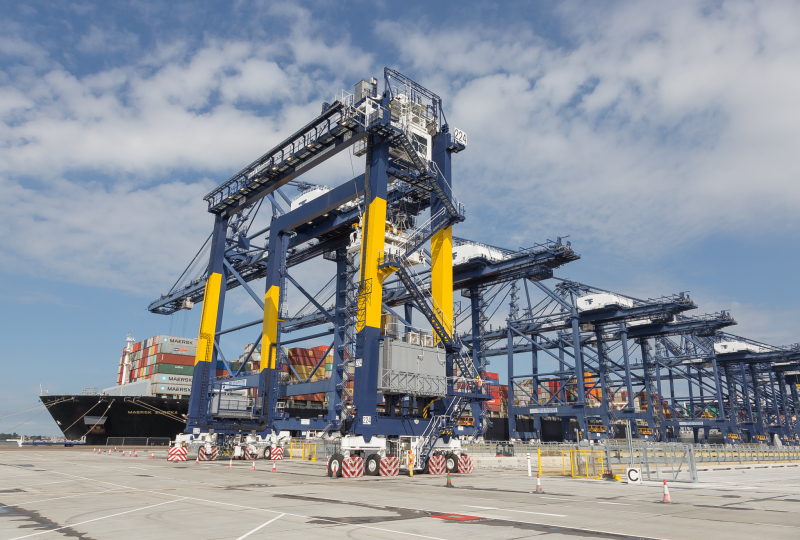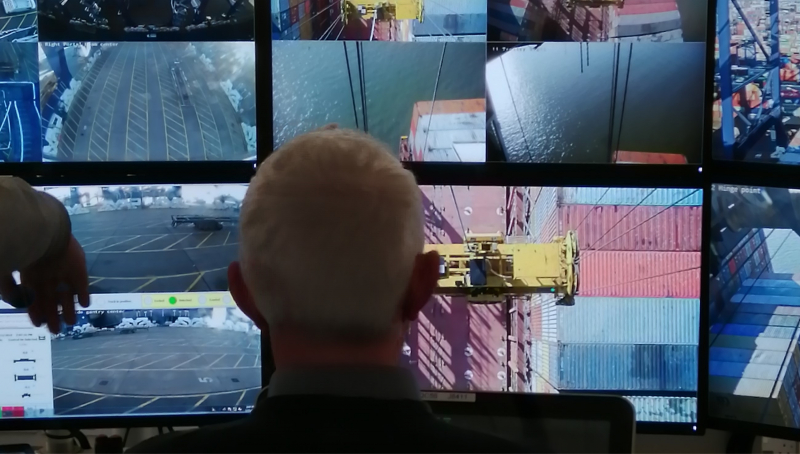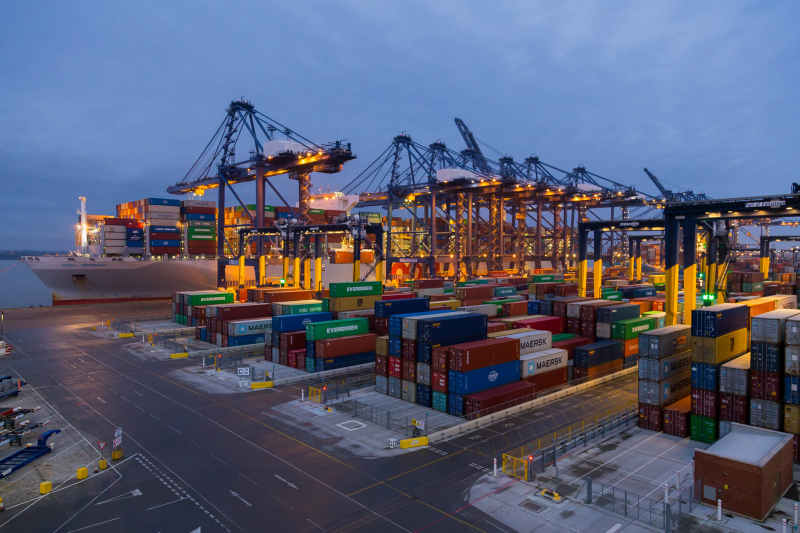5G Ports: 2,000 tonnes of power from your desk
At ports around the world, speed and accuracy are everything. Machine downtime, operational error and unexpected equipment failure can cost millions. But 5G is going to be a game changer in delivering a new level of speed and accuracy in operations that will make all the difference in the world.
As the UK’s largest port, Hutchison Ports Port of Felixstowe has a special role in ensuring that national trade flows smoothly. It is teaming up with another CK Hutchison family member – 3 UK – and other partners to create a standalone 5G network which is being tested in 2021 for deployment in 2022. Connecting 2,000-tonne cranes and their myriad sensors to a 5G network and AI (artificial intelligence)-driven cloud computing platforms is expected to deliver a host of benefits to port operators and participants in the many supply chains that run through Port of Felixstowe.
The initial plan is to connect the port’s remote control yard cranes (RCYC) to a 5G network. The RCYC will use the network to link the controls and over 20 cameras per crane which direct crane movements as they move containers at the port. Latency (the delay in relaying information across networks) will be dramatically reduced to the point where it is less than 15 milliseconds – a latency almost undetectable to human observers. It’s also ultra-reliable, meaning that remote operators’ handling will be in real-time and free from hang-ups that could disrupt loading and unloading, or worse, cause an accident.


Multi-million-pound Savings
The 5G network will also be connected to sensors on the quay cranes that measure temperature, vibrations and noise. Unusual changes in these variables can suggest problems like uneven wear and tear that could result in unexpected maintenance and costly downtime. The new system will feed real-time data to a local computing core that will use AI to create a ‘predictive maintenance algorithm’ that is constantly detecting and analysing conditions and which should deliver “multi-million-pound savings from improved availability and better planning of scheduled maintenance,” according to Karen Poulter, Head of Information Systems for Hutchison Ports UK.
That AI will also be connected to other operational data (for example, data on throughput planning, land and sea transport connections) and even financial data to create a holistic understanding of the business that can drive enhanced decision making.
But Ms Poulter knows it isn’t just about the machines. Transforming crane operation into a comfortable desk job – rather than a physically demanding stint in a cramped cabin in the sky – makes recruitment easier. “It’s getting increasingly hard to attract talent to the ports and we need to ensure that we can appeal to the whole diversity of the potential workforce,” she says. Remote crane operation is part of the answer.
More cranes – of which there are over 110 at Felixstowe – will be equipped over time for remote control operations and 5G is a must for this. “Globally, Hutchison Ports is committed to the automation of cranes, but connectivity is an issue. It’s not practical to run cables across a dockside,” says Ms Poulter.
The current operations include a 3 UK-developed link to off-site computing and processing using a 4G network. The core of that system is embedded in the 3 UK network. But 3 UK is open to multi-party collaborations to develop bespoke solutions to answer customer needs. That is exactly the case with this 5G roll-out.
Connecting 2,000-tonne cranes and their myriad sensors to a 5G network and AI-driven cloud computing platforms is expected to deliver a host of benefits.
Bringing Smart Partners Together
This project also involves partners from the commercial and academic sectors. The University of Cambridge is bringing its AI expertise to bear on port-related issues. Blue MESH Solutions is an Internet of Things (IoT) and sensor technology company that will be at the front line of data input and analysis on the cranes. Ericsson telecommunications equipment will also be part of the 5G network.
Lessons learned can then be used at Felixstowe in more projects, for example, the use of autonomous vehicles on-site using 5G networks. Given the expansion of economic activity expected as Port of Felixstowe assumes its recently awarded freeport status in the UK, the extra efficiency will be needed to keep goods moving smoothly.
